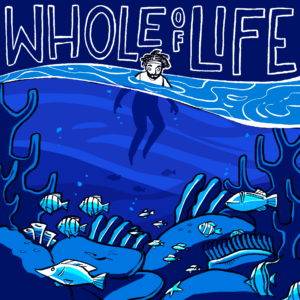“The ‘Whole of Life Way’ is a relational philosophy to challenge and deepen the Pacific Way, as a new consciousness, tested and lived by Pasifika communities for centuries, assisted with their resilience processes, shaped their ecological spiritualities and wellbeing, and underpinned their ‘whole of life’ knowledge.”
– Reverend Professor Upolu Lumā Vaai
Spirituality at the Core of Pacific Life
“Spirituality is the main part of the Pacific existence. They (international development partners) have no idea of what it actually is – of its breadth. It is our existence; it is our wellbeing.” – Petero, PCC
The essence of Pacific existence is deeply intertwined with spirituality, a concept that international development partners often fail to grasp. For the Pacific peoples, spirituality is not a separate entity but the very fabric of their being and wellbeing.
Re-imagining Development
A re-imagining of what successful development looks like is essential. Development should enhance lives, helping people pursue their vision of the ‘good life,’ not impose an external vision upon them. The ‘Reweaving the Ecological Mat’ (REM) framework emphasises the need for policy makers in Australia to understand Pacific worldviews, which recognise the interconnected nature of life. Economic, cultural, social, spiritual, and ecological wellbeing are inseparable in Pacific contexts. Therefore, conventional models that separate these aspects often fail to translate effectively.
Pacific academics, economists, theologians, social thinkers, and policy makers have reimagined development with the REM framework and accompanying indicators. This holistic approach should be embraced by Australian policy makers in their partnerships with the Pacific.
The Fluidity of Spirituality
“Spirituality is fluid; it connects us to each other and everything around us. Thus, when something is unsettled, it is felt by all.” – Rusila, IMR
Spirituality in the Pacific is dynamic and all-encompassing, connecting individuals to their surroundings and each other. Disruptions in one area of life resonate throughout the community, highlighting the need for development approaches that honour this interconnectedness.
Community-Driven Change
Re-imagining development is vital to ensure community-driven change that enhances lives rather than forcing communities to fit into Western values. A whole-of-life approach recognises the wisdom and value of Indigenous ways of living and seeks to learn from and incorporate this knowledge. A similar holistic approach is necessary when partnering with First Nations peoples. External value systems cannot be imposed; instead, there must be collaborative efforts led by the communities themselves.
“While often well-intentioned, far too many [programs] proved to be ineffective and did not facilitate meaningful empowerment or change. I strongly believe the principles of social justice and the right to self-determination must ground any initiatives in order to succeed.” – Ms. Patricia Anderson AO
The Importance of Community Leadership
It is well-established that development projects failing to be led by the community and their values are usually unsuccessful. Once development agencies or governments leave, communities are likely to quickly abandon projects that do not genuinely enhance their lives or reflect their values. Development must work for the community, rather than forcing the community to conform to external definitions of ‘successful development.’
“Whatever coloniality is, its greatest achievement is to make us think that the other dimensions that make up the ‘whole of life’ such as spirituality, intangibility, chaos, uncertainty, and complexity, are immeasurable and defective, therefore must be annihilated.” – Reverend Professor Upolu Lumā Vaai
The Call for Integrating Traditional Values
“Unless our [traditional Melanesian] values are adopted into the modern world, we face a serious challenge of disintegration. A nation can remain free, united, and progressive in every way, but unless it builds on the solid foundations of its ethical values, it is likely to be a soul-less entity.” – Bernard Narokobi
For true progress and unity, integrating traditional values into modern development approaches is essential. By building on the solid foundations of ethical values, nations can avoid becoming soulless entities and instead foster thriving, resilient communities.
Embracing the ‘Whole of Life Way’ means recognising and honouring the interconnectedness of all aspects of life, ensuring that development is genuinely beneficial and respectful of the Pacific peoples’ values and way of life.
REFLECTION by Pastor Billy
PRAYER by Reverend Jon Humphries
May we be thankful.
For the air we breathe and the ecosystem that generates it.
For food we eat and the complex web of life that sustains it.
For the trees and their magnificence.
For microbes that live and undergird the cycle of life.
For flowers, not only for their beauty, but the staggering subtle way that they promulgate the renewal of plant life.
For animals and the wonder that we and others are.
For the cosmos and the seemingly limitless mystery that it presents.
For the oceans and their depths.
For the skies and the wonder of weather.
For the earth and its aged structure, the foundation of our world.
These are but ten, may we find ten times more reasons,
And then let us start again.
Almighty Creator,
God abundance,
Word of God through whom all things were made,
Blesser of all,
Beginning and end.
May we continue to give thanks.
May we live in harmony with creation.
Amen – let it be so.
Excerpt from 40 Days of Hope: Six Bible Studies for the Lenten Journey by Rev Dr Cliff Bird with Prayers by Rev Jon Humphries
ARTWORK by Rowena Seutatia MacDonald
